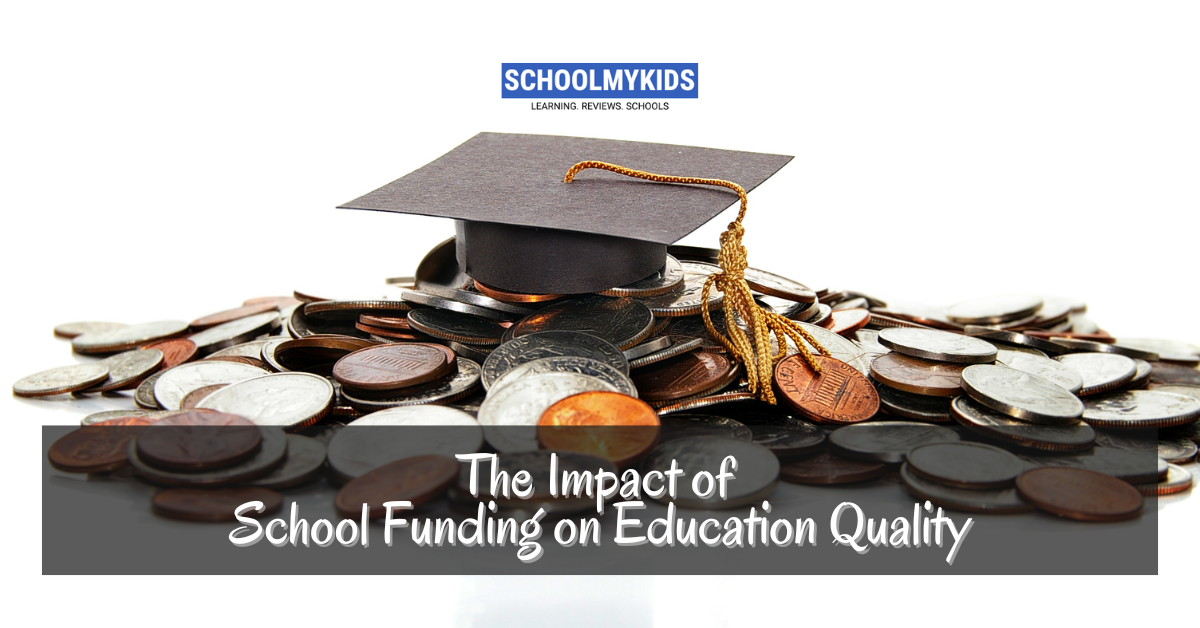School funding is a crucial factor influencing the quality of education. The distribution and allocation of financial resources directly affect various aspects of a school’s operations, from infrastructure to teacher salaries. Understanding the impact of funding on education quality can help stakeholders advocate for more equitable resource distribution.
The Role of School Funding
- Infrastructure and Facilities:
- Physical Environment: Well-maintained buildings and modern facilities enhance the learning experience. Schools with adequate funding can invest in safe and conducive environments that promote student engagement.
- Technology and Resources: Access to up-to-date technology and learning materials is vital. Schools with better funding can provide students with computers, tablets, and internet access, crucial for contemporary education.
- Teacher Quality and Retention:
- Salaries and Benefits: Competitive salaries attract and retain qualified teachers. Well-funded schools can offer better compensation packages, reducing turnover and ensuring that experienced educators remain in the classroom.
- Professional Development: Funding allows for continuous teacher training, improving instructional methods and keeping educators updated on best practices and new educational strategies.
- Student Support Services:
- Counseling and Mental Health Services: Adequate funding enables schools to provide essential services such as counseling, which supports students’ emotional and psychological well-being.
- Special Education: Schools with sufficient resources can offer tailored support for students with disabilities, ensuring that all students receive the education they need.
- Extracurricular Activities:
- Enrichment Programs: Funding supports extracurricular activities such as sports, arts, and clubs, which are vital for student development. These programs foster teamwork, leadership skills, and personal growth.
The Connection Between Funding and Educational Outcomes
- Academic Achievement:
- Standardized Test Scores: Research shows that increased funding often correlates with higher test scores. Schools with more resources can provide better instructional materials and learning environments, directly impacting student performance.
- Graduation Rates: Schools with higher funding typically have better graduation rates, as they can offer additional support, such as tutoring and after-school programs, to help students succeed.
- Equity and Access:
- Addressing Disparities: Equitable funding can help close the achievement gap between affluent and underprivileged communities. By allocating more resources to underserved schools, educational outcomes can improve across the board.
- Access to Advanced Courses: Well-funded schools often offer a wider range of advanced placement (AP) and honors courses, providing students with opportunities for college readiness and academic challenge.
Challenges in School Funding
- Inequitable Distribution:
- Funding Formulas: Many school funding formulas are based on local property taxes, leading to disparities between wealthy and low-income areas. This system often perpetuates inequality, as schools in affluent areas receive more funding.
- State and Federal Contributions: Variability in state and federal contributions can further exacerbate funding disparities. States with lower education budgets may struggle to provide adequate resources to all schools.
- Impact of Budget Cuts:
- Program Reductions: Budget cuts often lead to the elimination of programs, larger class sizes, and reduced support services, negatively impacting education quality.
- Teacher Layoffs: Funding shortages can result in teacher layoffs, increasing student-to-teacher ratios and reducing individual attention for students.
The Case for Increased Investment
- Long-term Benefits:
- Economic Impact: Investing in education yields long-term economic benefits, as well-educated individuals contribute more significantly to the workforce and economy.
- Social Outcomes: Better-funded schools can contribute to lower crime rates, improved health outcomes, and increased civic engagement.
- Policy Considerations:
- Reform Funding Formulas: Policymakers should consider reforming funding formulas to ensure a more equitable distribution of resources. This may include increasing state and federal contributions to balance disparities caused by local funding.
- Targeted Investments: Directing funds to areas with the greatest need can help improve education quality in underfunded schools. Investing in early childhood education, for example, can have significant long-term impacts on student success.
Conclusion
The impact of school funding on education quality is profound. Adequate and equitable funding ensures that all students have access to the resources and support they need to succeed. Addressing funding disparities is crucial for fostering an inclusive and high-quality education system. By prioritizing investment in education, society can reap significant benefits, creating a more equitable and prosperous future for all.








Be the first one to comment on this story.